Sowore Alleges APC Controls All Opposition Parties Except AAC Nigeria’s political landscape, human rights activist and former presidential candidate Omoyele Sowore has accused all opposition parties—except his African Action Congress (AAC)—of being under the control of the ruling All Progressives Congress (APC). Speaking during an interview on Rubbin’ Minds, a political talk show on Channels
Sowore Alleges APC Controls All Opposition Parties Except AAC

Nigeria’s political landscape, human rights activist and former presidential candidate Omoyele Sowore has accused all opposition parties—except his African Action Congress (AAC)—of being under the control of the ruling All Progressives Congress (APC).
Speaking during an interview on Rubbin’ Minds, a political talk show on Channels Television aired on Sunday, June 15, 2025, Sowore claimed that most of Nigeria’s 18 registered political parties were either created or co-opted by the APC to serve strategic political purposes, making them mere “feeder parties” or “special-purpose vehicles” disguised as opposition.
Tensions Rise In Osun As APC, PDP Clash Over Council Control After Court Ruling
Sowore Labels Other Parties as ‘Feeder Vehicles’ for APC
According to Sowore, his AAC—which he founded in 2018—remains the only authentic opposition party in the country. He explained that after conducting “a little research,” his team discovered that many of the other political groups had origins or financial ties that trace directly back to the ruling party.
“What we found out in our little research is that most of the parties that are left, apart from AAC, are parties that were created by the major parties,” Sowore said. “They call them feeder parties or special-purpose vehicles.”
He elaborated that these minor political entities are typically used during election seasons to carry out legal or political tasks on behalf of the APC. These include filing election petitions to muddy legal waters or create the illusion of competitive democracy while ultimately advancing the interests of the ruling party.
“Everybody Gets Paid and Walks Away” – Sowore Alleges Political Compromise
In perhaps the most damning part of his interview, Sowore alleged that many so-called opposition candidates are often secretly funded by the APC during election cycles. He said their real purpose is to file court cases after elections, only to later be settled out of court, allowing the ruling party to retain power unchallenged.
“Sometimes, some of the candidates or the parties are meant to help them with legal challenge,” he stated. “So they all go and challenge the election, and whomever has won would approach either the opposition party or the smaller parties and settle them. Everybody gets paid and walks away.”
He described the entire system as a “well-oiled deception” aimed at misleading Nigerian voters into believing they have real electoral choices when, in fact, the opposition is largely compromised.
Labour Party Criticized as a ‘Short Rental’
When asked if his criticism extended to more prominent opposition parties like the Peoples Democratic Party (PDP) and the Labour Party (LP), Sowore was quick to respond. He particularly singled out the Labour Party, describing it as “the worst” among the lot.
He stated that many politicians who joined the LP during the 2023 general elections only did so to exploit electoral opportunities before quickly returning to their original political homes.
“Labour Party is the worst,” Sowore declared. “That’s why I refer to the Labour Party as a short rental. Most of them that went to Labour Party saw an opportunity. They were coming from either PDP or APC. They walked in there, grabbed power, and then the moment they had the booty bag, they went back to where they’re coming from.”
He emphasized that this behavior reflects a broader ideological bankruptcy in Nigerian politics, where party switching is rampant, and political loyalty is tied more to opportunism than to any consistent vision or policy platform.
Allegations Raise Questions About Electoral Integrity
Sowore’s claims, while not new, arrive at a time when Nigeria’s democracy is under growing scrutiny. With public trust in institutions waning, particularly after recent controversial elections, allegations that the ruling party manipulates opposition structures could have serious implications for democratic accountability.
He also criticized the conduct of opposition parties during meetings with the Independent National Electoral Commission (INEC), claiming that many of them act as though they are aligned with the APC. “The people that oppose us the most when we go to meetings are these other smaller parties that you think are in the opposition,” he said, pointing out their lack of ideological independence.
Sowore’s Position Reinforces AAC’s Identity as Outlier
For Sowore, the interview reinforced the AAC’s image as a political outlier—uncompromised, principled, and focused on systemic change. Despite struggling to gain a significant share of the vote in past elections, the party has consistently advocated for transparency, radical reform, and anti-corruption in governance.
While critics may dismiss Sowore’s remarks as hyperbolic or self-serving, his assertions spotlight the opaque relationships and questionable alliances that continue to characterize Nigeria’s multi-party political system.
As the country looks toward future elections, these allegations are likely to fuel further debate over the authenticity of opposition politics in Nigeria and the true nature of political competition under the current democratic framework.

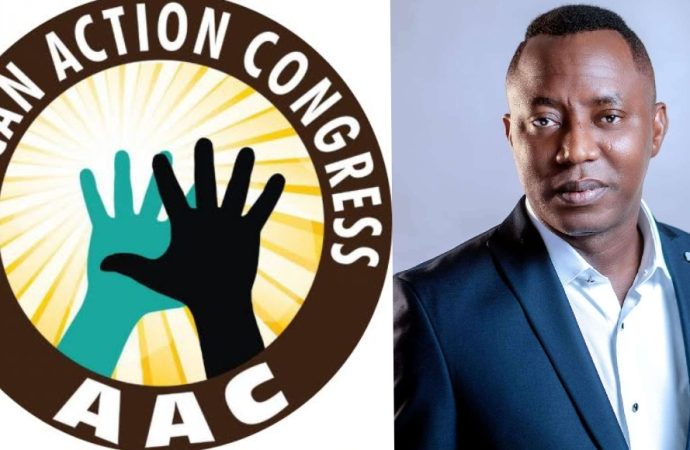
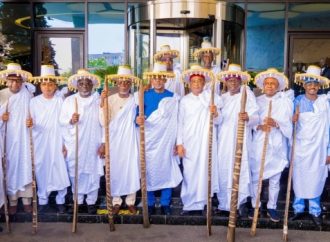

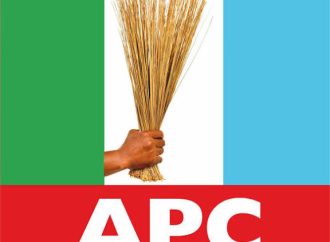
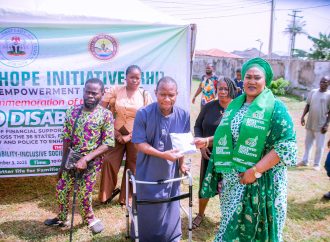
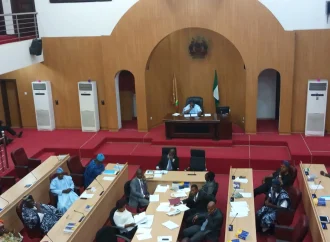


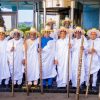
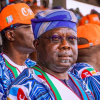

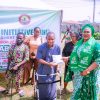





Leave a Comment
Your email address will not be published. Required fields are marked with *